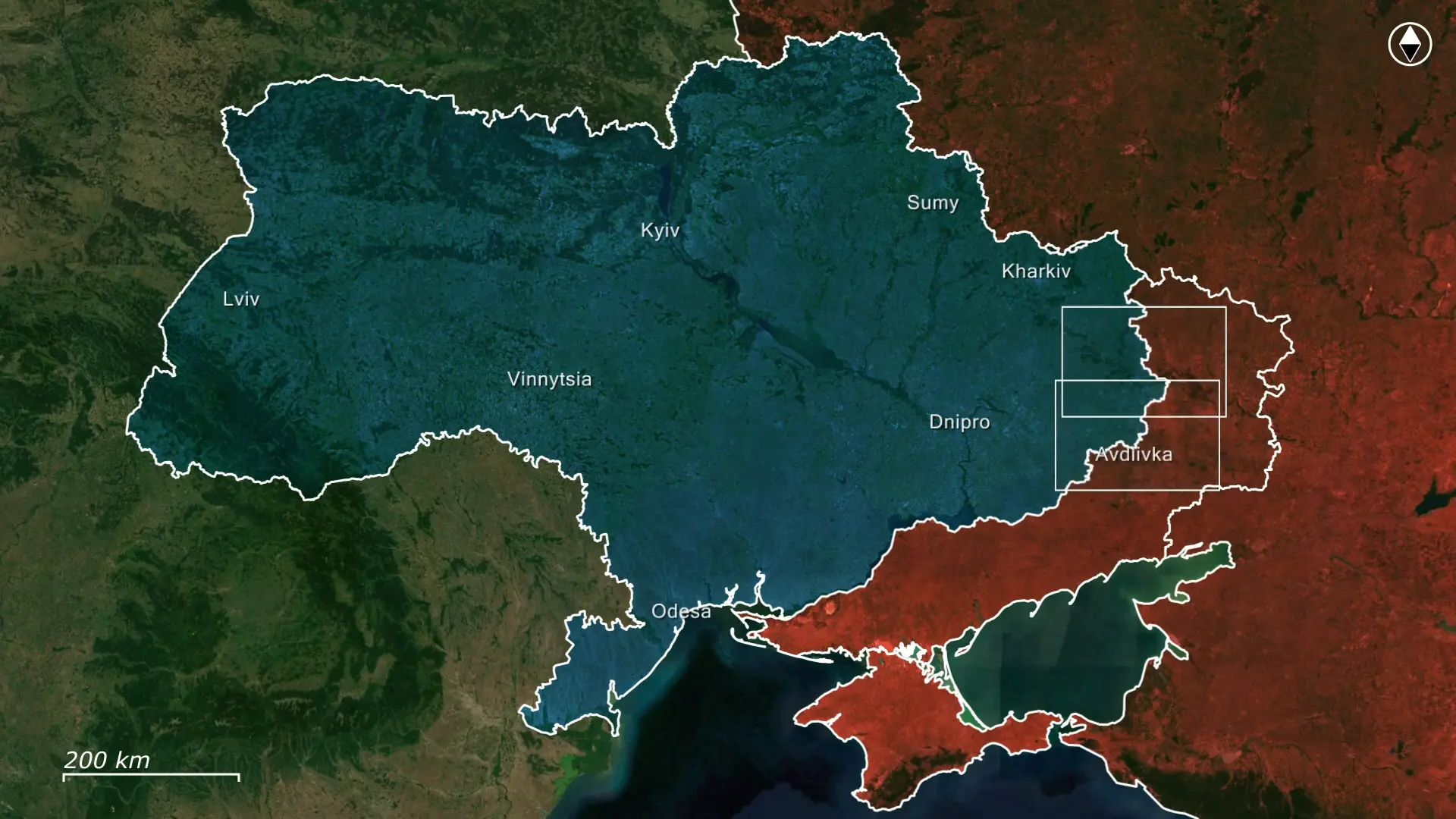After over a month of preparations, the Russians initiated a new wave of counterattacks to recapture Malaya Lokhnya from two axes of advance, with the engagement of North Koreans. However, Ukrainians took advantage of the operational pause, enabling them to fully prepare some of their most elite units to face the Russian assaults.

The Russian plan in this area was to advance four kilometers along a paved road toward Malaya Lokhnya, aiming for the town near the settlement of Pogrebki. A second route was planned to the west of Malaya Lokhnya, advancing via the road from Novoivanivka. Gaining control of Malaya Lokhnya would allow the Russians to cut off Ukrainian forces positioned north of the town and secure a large northern area, thereby extending their counteroffensive southward toward Sudzha.
Some of Ukraine's most elite and experienced units, including the 47th Mechanized Brigade, 82nd Airmobile Brigade, 17th Mechanized Brigade, and 80th Airmobile Brigade, were tasked with defending this area. Given these units’ expertise and strong leadership, they anticipated repeated large-scale Russian mechanized assaults along the paved roads to Malaya Lokhnya. Recognizing that the Russians could only attack from two directions due to the limited road access, Ukrainian commanders prepared by deploying substantial drone units and implementing remote mining along these routes to counter the assault.

As anticipated, the Russians launched a major assault north of Pogrebki along the road to Malaya Lokhnya, deploying around fifteen BTRs and over 150 soldiers from the Russian 810th Marine Brigade, reportedly with North Korean troops. The assault hit landmines immediately, wiping out the first three vehicles and an entire platoon before reaching Ukrainian-controlled areas. By the time Russian forces entered Pogrebki, five of the fifteen BTRs had already been destroyed by landmines alone. Ukrainians then destroyed nine more BTRs around Pogrebki using a combination of drones, landmines, and RPGs, forcing a desperate Russian retreat. Only one BTR managed to reach the rear but was soon eliminated, marking the total destruction of the Russian column.
Published footage by the Ukrainian troops from the area reveals that North Korean Type 73 machine guns were discovered scaterred around the eliminated column. This discovery implies the gradual inclusion of North Korean soldiers in Russian storming operations, as their numbers of deployed fighters are slowly growing in Kursk.

Anticipating a coordinated Russian assault from Novoivanivka to align with the attack toward Pogrebki, Ukrainians deployed tanks from the 17th Mechanized Brigade to disrupt Russian force concentrations preparing for the offensive. Combat footage shows Ukrainian tanks conducting a raid on Russian positions in nearby forests. After effectively neutralizing these assault forces and eliminating the threat, the Ukrainian tanks withdrew without incurring any losses.

Overall, the Russians launched their largest assault in the direction of Malaya Lokhnya in hopes of repeating the success of their previous operations in Kursk and failed as their entire assault units were wiped out. As the intensity of Russian attacks in Kursk is growing with their relatively low number of troops for broader offensive operations, they are hurrying up to include North Korean troops in their further offensive efforts, however, with disastrous efficiency so far.








.jpg)








Comments